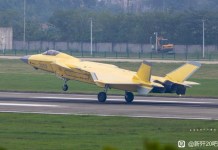The withdrawal of US troops from Afghanistan following the peace deal raises an imminent risk of border frictions with China that shares a small but strategic boundary line with Afghanistan.
The new Acting Defense Secretary, Chris Miller announced the reduction of troops from 4500 to 2500 by mid-January.
“President Trump’s plan to bring the wars in Afghanistan and Iraq to a successful and responsible conclusion and to bring our brave service members home,” Miller said during a press conference.
Taliban has hailed the move but the Afghan military has warned against a hasty withdrawal of American troops.

“If the US draws down to 2,500 so soon, it will create a lot of problems throughout our military,” Col. Abdul Fattah Ishaqzai, the maintenance chief for the Afghan air force, told Stars and Stripes. “I think our American colleagues should look at the situation in the country and be very careful about withdrawing.”
Analysts believe that the terrorist forces and Muslim extremists will become an imminent threat for China who are raged by Beijing’s treatment of Uighurs.
According to the United Nations Human Rights Panel, there are credible reports of about one million ethnic Uighurs in China held in a “massive internment camp that is shrouded in secrecy.” Beijing calls them “vocational and training centers.”
“If Afghanistan spirals out of control in terms of security, the spillover effects of that conflict would be felt in China,” Nishank Motwani, deputy director at Kabul-based think tank the Afghanistan Research and Evaluation Unit told SCMP.
After the US’ invasion of Afghanistan following the 9/11 terrorist attacks, Beijing remained quiet even though the US military stood close to its borders. In 2002, Washington designated the Eastern Turkestan Islamic Movement (ETIM), an Islamic extremist organization founded by Uyghur extremists calling for Xinjiang as an independent Islamic state, as a terrorist organization.
Motwani told SCMP that “while ETIM was at present severely constrained in its ability to attack China, this could change if the Taliban increased its control over Afghanistan.”
However, deviating from this policy after 18 years, US Secretary of State Mike Pompeo delisted ETIM as a terrorist organization on November 5. Beijing slammed the move calling it Washington’s “double standards on anti-terrorism.”
“Xinjiang will steadfastly crackdown on ETIM and other terrorist forces,” Iljan Anagyit, a spokesperson for the Xinjiang Uygur autonomous region’s information office said at a press conference, Xinhua reported.
For long, Beijing has been worried about the existing links between militant groups and Muslim extremists operating in Xinjiang which is home to the mostly Muslim Uyghur people.
However, analysts believe that Beijing won’t take the forefront and diplomatically enter the region with its “iron brother”, Pakistan.
“China is going to work more closely with Pakistan when it comes to Afghanistan as opposed to playing a leading role directly,” said Motwani.
Pakistani Prime Minister Imran Khan wrote in a Washington Post column that “all those who have invested in the Afghan peace process should resist the temptation for setting unrealistic timelines,” warned Khan in his column. “A hasty international withdrawal from Afghanistan would be unwise.”
“When President Trump wrote to me in late 2018 to ask for Pakistan’s assistance in helping the United States achieve a negotiated political settlement in Afghanistan, we had no hesitation in assuring the president that Pakistan would make every effort to facilitate such an outcome — and we did,” wrote Khan.
It is yet to see if China will pay the price for Trump’s decision to withdraw the troops from the war-torn region of Afghanistan.




